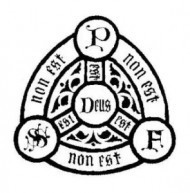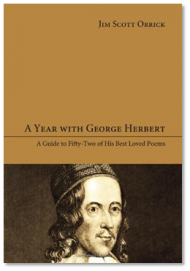Justin Taylor's Blog, page 300
August 12, 2011
There's No "Trinity Verse"—And That's a Good Thing
 Fred Sanders, author of The Deep Things of God: How the Trinity Changes Everything, writes:
Fred Sanders, author of The Deep Things of God: How the Trinity Changes Everything, writes:
The Trinity is a biblical doctrine, but let's admit it: There's something annoying about how hard it is to put your finger on a verse that states the whole doctrine.
The Bible presents the elements of the doctrine in numerous passages, of course: that there is only one God; that the Father is God; that the Son is God; and that the Spirit is God. We can also tell easily enough that the Father, Son and Spirit are really distinct from one another, and are not just three names for one person. If you hold all those clear teachings of Scripture in your mind at one time and think through them together, the doctrine of the Trinity is inevitable. Trinitarianism is a biblical doctrine and all the ingredients are given to us there: Just add thought and you have the classic doctrine.
Like most evangelicals, though, I would prefer to have a doctrine be stated clearly and concisely in one place. I like my doctrines verse-sized. I sometimes wish there were one verse that said, "God is one being in three persons, Father, Son and Holy Spirit." The doctrine of the Trinity, though, is simply not verse-sized. Sometimes that feels like a disadvantage, but in fact it's an advantage. The doctrine of the Trinity is a massive, comprehensive, full-Bible doctrine that serves to expand our minds as readers of Scripture. In Scripture, God is leading his people to understand who he is as Father, Son and Spirit.
Sanders goes on to sketch how a 3-verse, 5-verse, and 12-verse passage presuppose and show the Trinity. Entire book of the Bible—and the biblical storyline itself—show the same.
His conclusion: "The Trinity is a biblical doctrine, therefore, in a very special sense: not in any one verse, but as the key to the entire book."
You can read the whole article here.
August 11, 2011
The Four Keys (Usually) to a Fruitful Pastorate
"Preach and Pray, Love and Stay."
See also this piece by Dever on why pastors should consider staying in their pastorates for the longterm.
Do You Bleed Bibline?
Charles Spurgeon:
Oh, that you and I might get into the very heart of the Word of God, and get that Word into ourselves! As I have seen the silkworm eat into the leaf, and consume it, so ought we to do with the Word of the Lord—not crawl over its surface, but eat right into it till we have taken it into our inmost parts. It is idle merely to let the eye glance over the words, or to recollect the poetical expressions, or the historic facts; but it is blessed to eat into the very soul of the Bible until, at last, you come to talk in Scriptural language, and your very style is fashioned upon Scripture models, and, what is better still, your spirit is flavored with the words of the Lord.
I would quote John Bunyan as an instance of what I mean. Read anything of his, and you will see that it is almost like the reading the Bible itself. He had read it till his very soul was saturated with Scripture; and, though his writings are charmingly full of poetry, yet he cannot give us his Pilgrim's Progress—that sweetest of all prose poems — without continually making us feel and say, "Why, this man is a living Bible!" Prick him anywhere—his blood is Bibline, the very essence of the Bible flows from him. He cannot speak without quoting a text, for his very soul is full of the Word of God. I commend his example to you, beloved.
—"Mr. Spurgeon as a Literary Man," in The Autobiography of Charles H. Spurgeon, Compiled from His Letters, Diaries, and Records by His Wife and Private Secretary, vol. 4, 1878-1892 (Curtis & Jennings, 1900), p. 268.
August 10, 2011
The Unholy Pursuit of God in Moby Dick
R. C. Sproul looks at the some of the "unparalleled theological symbolism" in Herman Melville's Moby Dick, focusing on the central (though disputed) symbol of the whale.
Sproul rejects the interpretation that Moby Dick is a symbol of monstrous evil and argues instead that it is a symbol of God himself. "In this interpretation, Ahab's pursuit of the whale is not a righteous pursuit of God but natural man's futile attempt in his hatred of God to destroy the omnipotent deity."
He concludes:
If the whale embodies everything that is symbolized by whiteness — that which is terrifying; that which is pure; that which is excellent; that which is horrible and ghastly; that which is mysterious and incomprehensible — does he not embody those traits that are found in the fullness of the perfections in the being of God Himself?
Who can survive the pursuit of such a being if the pursuit is driven by hostility? Only those who have experienced the sweetness of reconciling grace can look at the overwhelming power, sovereignty, and immutability of a transcendent God and find there peace rather than a drive for vengeance. Read Moby Dick, and then read it again.
You can read the whole Tabletalk article here.
Fact-Checking Ryan Lizza on Francis Schaeffer
Joe Carter fact checks Ryan Lizza's comments about Francis Schaeffer in his lengthy New Yorker profile of Michelle Bachmann.
HT: TGC
Software Tools for Writers
I think it's generally agreed, by Those Who Know, that one of the best tools ever created for writers is Scrivener. And indeed, Scrivener is awesome. But no software or hardware tool is going to write your book for you, so don't get too emotionally invested in such things, and don't expect more than an application can deliver. The more important thing is to make sure that, whatever tool you use, you know its capabilities inside and out. Intimate knowledge of your software enables you to get the most out of it.
I haven't switched to Scrivener, though I admire it, largely because I am absolutely devoted to the text editor BBEdit, which allows me to create Projects from multiple files, do search-and-replace across multiple files, "fold" sections of text, view in split screens, and so on and so on. I know this app thoroughly, which makes my use of it pretty seamless — and that's what you want from any writing tool: for it to be as invisible and impalpable as possible. So whatever tools you decide to use, stick with them until you know them very well; you're better off with a flawed or limited instrument that you can make sing than with a super-fancy one that makes your fingers stumble.
Have any readers—er, writers—out there used either of these tools, or others you would recommend?
The Dragon's Tooth
A trailer—starring Super 8's Joel Courtney—for The Dragon's Tooth, the first volume in N.D. Wilson's adventure fantasy series Ashtown Burials, written for readers in the middle grades:
So You Wanna Be a Writer?
Unexpected counsel from one of today's best writers, Larry Woiwode:
Some readers by now are looking for my theory of the way to produce Christian art or write Christian fiction, since theories are what people believe govern the world. They don't, and I have none. I am working out my aesthetics (and perhaps salvation) with each book—with this one—and each book poses unique problems. But I can assure you that you will not begin to form your own aesthetics or way or writing unless you first belong to a church that teaches you fellowship and unity within Christ, and then begin to see writing as your daily humble job within that community. . . .
The time has come for Christian artists in their communities to begin building that City on a hill again, and I hope that one young student, or even a middle-aged one, will understand what I'm saying and perhaps at this moment sense the stirrings of a first novel. If that student takes scripture seriously, he should know that the more he immerses himself in a particular communion and comes to understand the ways in which each person within it is essential, the more distinctive and original his writing will be. And I hope that some young woman has begun to visualize her lifework, a shining series of interlocking narratives that will provide the material to repair some of the buildings of the centuries-old tradition of Christian writing. These were left unfinished when the writers of my generation turned aside to imitate our culture rather than turning first to the community that always should be available in Christ.
—Larry Woiwode, Acts (Harper Collins, 1993), pp. 74, 75-76.
Crossway has just published a new book by Woiwode: Words Made Fresh: Essays on Literature and Culture.
August 9, 2011
A Year with George Herbert: A Guide to 52 of His Best Loved Poems
 Maybe you don't read poetry. But then maybe you haven't been exposed to poetry by someone captured and captivated by the gospel like George Herbert (1593–1633).
Maybe you don't read poetry. But then maybe you haven't been exposed to poetry by someone captured and captivated by the gospel like George Herbert (1593–1633).
You may not have read yet George Herbert's poems—but some of our heroes of the faith did.
For example, Charles Spurgeon said "I love George Herbert from my very soul." He and his wife enjoyed and recommended "a page or two of good George Herbert," and she would read Herbert poems to him after Sunday evening church. She describes this time of her reading and her husband adding commentary:
I read on and on for an hour or more, till the peace of Heaven flows into our souls, and the tired servant of the King of kings loses his sense of fatigue, and rejoices after his toil. . . . [Charles's] enjoyment of the book is all the greater that he has thus to explain and open out to me the precious truths enwrapped in Herbert's quaint verse.
Richard Baxter wrote, "I must confess, after all, that next the Scripture poems, there are none so savoury to me, as Mr. George Herbert's. . . . Herbert speaks to God like one that really believeth a God, and whose business in the world is most with God."
C. S. Lewis said that Herbert was "a man who seemed to me to excel all the authors I had ever read in conveying the very quality of life as we actually live it from moment to moment."
Jim Scott Orrick, Professor of Literature and Culture at Boyce College, has done us a real service in putting together A Year with George Herbert: A Guide to Fifty-Two of His Best Loved Poems.
The links above take you to Amazon, but if you go to wipfandstock.com and use the coupon code GH365 you can get the book for a special discount of 40% off the retail price.
You can also download for free this PDF which contains Professor Orrick's introduction and the first two poems ("The Altar" and "The Sacrifice").
Four Kinds of People
Relying
Not relying
Obeying
1) Law-obeying,
law-relying
4) Law-obeying,
not law-relying
Disobeying
2) Law disobeying,
law-relying
3) Law disobeying,
not law-relying
Tim Keller, Galatians Study, p. 118:
Law-obeying, Law-relying
These people are under the law, and are usually very smug, self-righteous and pharisaical.
Externally, they are very sure they are right with God, but deep down, they have a lot of insecurity, since no one can truly be assured they are living up to standards. This makes them touchy, sensitive to criticism, and devastated when their prayers aren't answered.
Law-disobeying, Law-relying
These people have a religious conscience of strong works-righteousness, but they are not living consistently with it.
As a result, they are more humble and more tolerant of others than the Pharisees above, but they are also much more guilt-ridden, subject to mood swings and sometimes very afraid of religious topics.
(Some of these people may go to church but stay on the periphery because of their low spiritual self-esteem).
Law-disobeying, Not law-relying
These are the people who have thrown off the concept of the law of God.
They are intellectually secular or rather relativistic, or have a very vague spirituality. They largely choose their own moral standards and insist they are meeting them. But Paul in Romans 1 says that at a sub-conscious level, they know there is a God who they should be obeying.
(Such people are usually happier and more tolerant than either of the above groups. But usually there is a strong liberal self-righteousness. They are definitely earning their own salvation by feeling superior to others. It is usually a less overt kind of self-righteousness.)
Law-obeying, Not law-relying
These are Christians who understand the gospel and are living out of the freedom of it.
They obey the law of God out of grateful joy that comes from the knowledge of their sonship and out of the freedom from the fear of selfishness that false idols had generated. They are more tolerant than #3, more sympathetic than #2, and more confident than #1.
(Most real Christians tend toward the errors of #1, #2, and even #3, but to the degree that they do, they are impoverished spiritually.)
HT: Brad Andrews
Justin Taylor's Blog
- Justin Taylor's profile
- 44 followers




